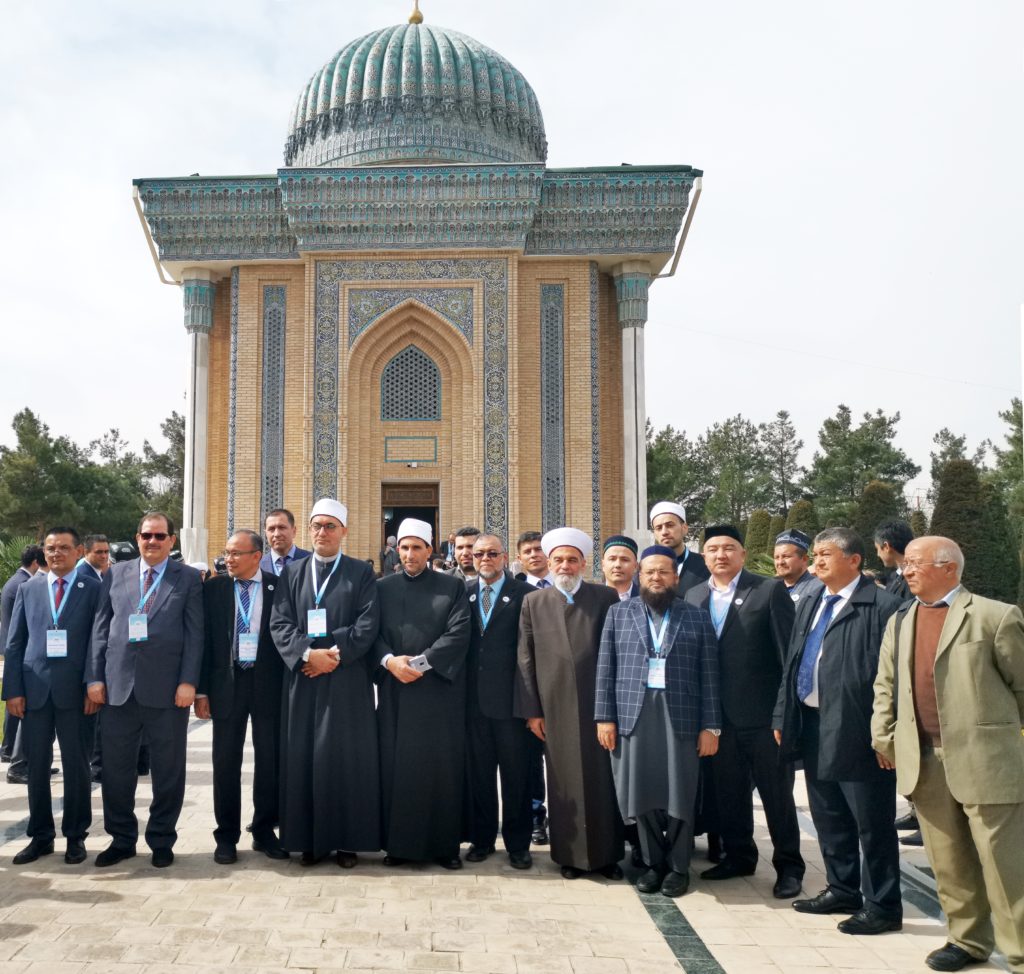Participation of Al-Furqan Foundation at the International Conference on “Imam Abu Mansur Maturidi and the Teaching of Maturidiyya: The Past and the Present”
The Republic of Uzbekistan Presidency and the Ministry of Islamic Affairs co-organised an international scientific conference titled: “Imam Abu Mansur Maturidi and the Teaching of Maturidiyya: The Past and the Present”. The conference was held over three days, 3-5 March 2020, in the city of Samarkand, the Republic of Uzbekistan.

The conference witnessed the participation of delegations representing many Islamic bodies and scientific universities, as well as scholars from Uzbekistan, and over 70 scholars and thinkers from the Grand al-Azhar. In addition, it was attended by scholars, religious leaders, and directors of scientific and research centres from over 20 countries, including Malaysia, Turkey, Pakistan, Algeria, Britain, Bosnia Herzegovina, Kazakhstan and Kyrgyzstan.
Al-Furqān Islamic Heritage Foundation participated in this conference, represented by its Head of Projects & Publications, Mr Mohamed Drioueche.
The aim of the conference was to provide insight into the personality of this Islamic nation, revealing the features and facets of its identity, dusting off its intellectual and spiritual heritage, and shedding light on the scientific and civilizational legacy of scholars from Transoxiana (mā warā’ al-nahr). The conference discourse encompassed the recent landmark achievements, including the establishment of numerous scientific research centres, most prominently the Centre of Islamic Civilization, entrusted with research into the country’s scientific heritage, as well as promoting noble Islamic values and principles among the youth and the younger generation.
The conference also reflected on an analysis of the life and works of Imam Abu Mansur Maturidi, a study of the evolution of Maturidiyya teachings after his death, and the biographies of his disciples and their scientific legacy. The conference also examined the importance of the heritage of Imam Abu Mansur Maturidi and his disciples in resolving emergent matters experienced in this day and age.
International experts praised the practical measures taken by Uzbekistan in enhancing the activities of religious education bodies. This included founding the International Islamic Academy of Uzbekistan in Tashkent, Mir-i-Arab Madrassa Higher Education Institution, the Sufi Teaching School within Baha-ud-Din Naqshband Centre in Bukhara, the Imam Bukhari Hadith Science School at Imam Bukhari Memorial Complex, the Ilm al-Kalam School at Imam Maturidi Centre in Samarkand, the Islamic Fiqh School in Burhan al-Din al-Marghinani Science Centre in Ferghana, and the Ilm al-Aqaid School at Abū al-Mu‘īn al-Nasafī Centre in Qashqadaryo.
The Conference sessions involving discussion and activities resulted in a set of resolutions and recommendations, most importantly:
- Establishing a memorial complex in Samarkand for Imam Maturidi, following national architectural traditions, sited in the square of his mausoleum, in recognition of his efforts in the Islamic disciplines, and presenting him as a role model for future generations.
- Authoring and publishing books elucidating Imam Maturidi’s works, alongside a series of booklets and academic studies dedicated to his life, works, and moral legacy, in recognition of this scholar’s role in developing spiritual values.
- Preparing illuminating commentaries and glosses on his books, “al-Tawḥīd”, “Ta’wīlāt Ahl al-Sunnah”, and “Tabṣirat al-adillah”, with the aim of introducing the public to the approach and thoughts of Maturidiyya teachings vis-à-vis issues pertaining to intellect, thought, and knowledge.
Mr Mohamed Drioueche proposed to the delegates that, for the purpose of supporting research into Maturidiyya heritage, it was key to survey, gather, and conserve the works by Imam Maturidi and Maturidiyya scholars held in world libraries. Moreover, to establish a reference library of Maturidiyya heritage texts, with the necessary search facilities, and a database containing catalogues and other bibliographic works related to Maturidiyya heritage. In addition, to ensure easy access to scholars, researchers, and students concerned with this heritage and civilisation. He stressed the importance of cataloguing Uzbek heritage, in general, and critically editing the valuable scientific manuscript works of Abu Mansur al-Maturidi, Abū al-Mu‘īn al-Nasafī, and other representatives of the Maturidiyya school of thought.
After the conference ended, the participating delegations visited Imam Maturidi Memorial Complex, comprising a mosque and cemetery, in the village of “Maturid”. This was followed by a visit to the tomb in Bukhara of Imam al-Bukhari (God’s Mercy upon him), compiler of the book, al-Jāmi‘ al-ṣaḥīḥ, popularly known as “Ṣaḥīḥ al-Bukhārī”, and a meeting with those in charge of Imam al-Bukhari higher Islamic Institute for Prophetic tradition and sciences. The conference delegates also visited to the International Islamic Academy of Uzbekistan in Tashkent, and met its directors and students, then visited the mosque and mausoleum of the erudite scholar, Qaffal al-Shashi (God’s Mercy upon him).




